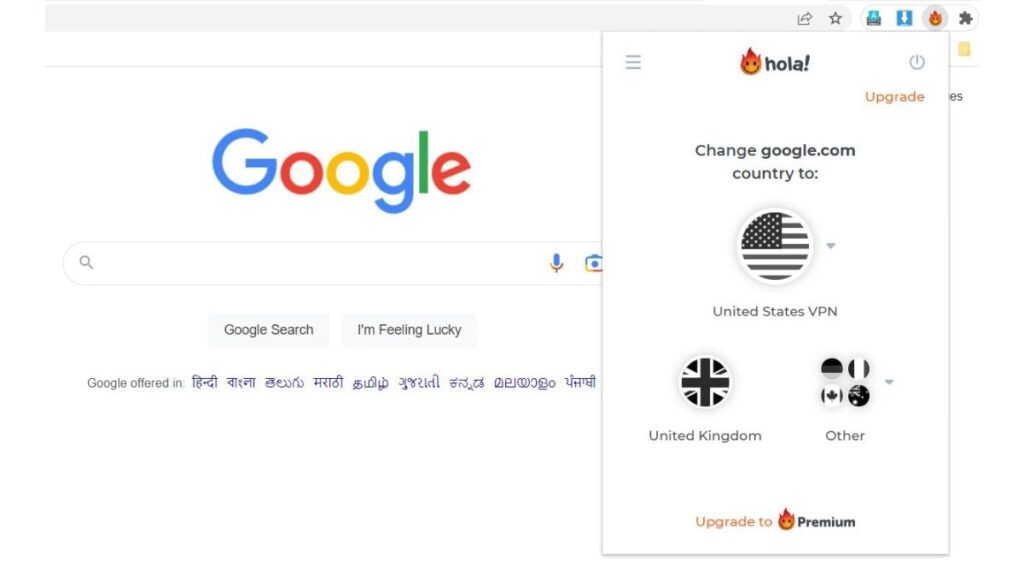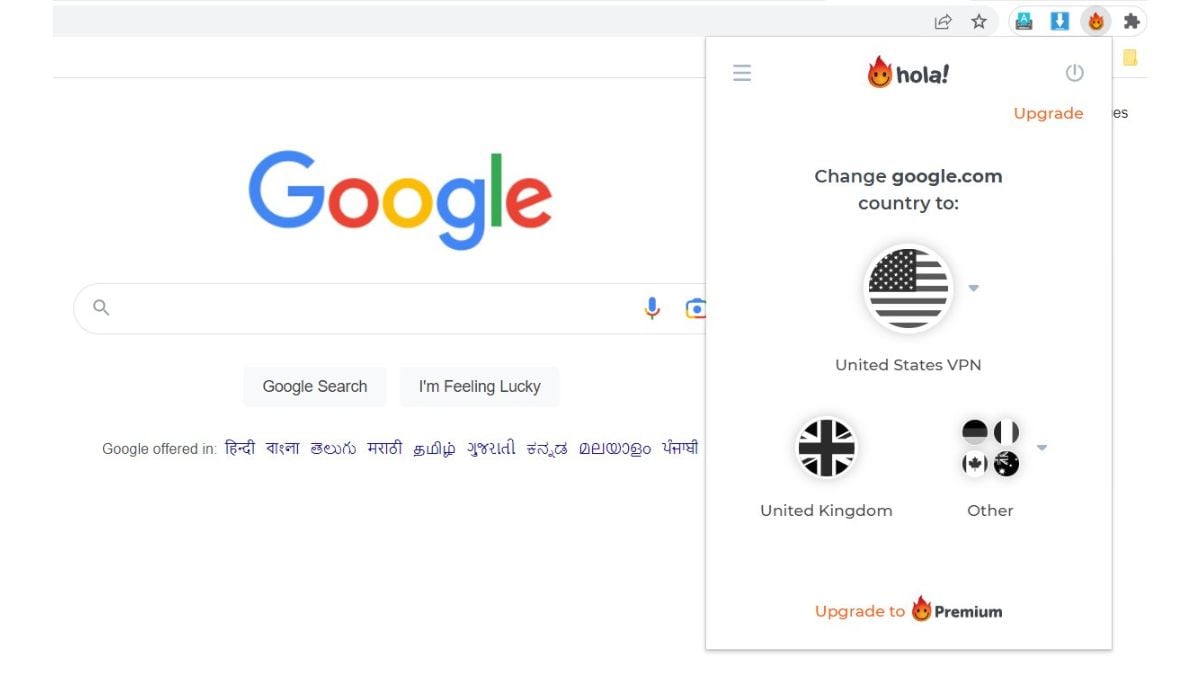
Hola Chrome Extension: Unveiling the Truth Behind the Free VPN
The promise of free VPN services is often too alluring to resist. Among these, the Hola Chrome Extension has garnered significant attention, both positive and negative. While it offers users a seemingly cost-free way to bypass geo-restrictions and access content from different regions, a deeper dive reveals a complex network with potential security and privacy implications. This article aims to provide a comprehensive overview of the Hola Chrome Extension, exploring its functionality, controversies, and alternatives, empowering you to make an informed decision about its use.
What is the Hola Chrome Extension?
The Hola Chrome Extension is a browser extension that allows users to access websites and content that might be blocked in their geographical location. It operates as a peer-to-peer (P2P) VPN, meaning that users share their bandwidth with other users in the Hola network. This is how Hola claims to provide its service for free. Instead of relying on traditional VPN servers, Hola leverages the resources of its user base.
How Does the Hola Chrome Extension Work?
Unlike conventional VPNs that route traffic through dedicated servers, Hola functions by creating a distributed network of its users. When you use Hola, your internet traffic might be routed through another user’s computer, and vice versa. This P2P model is the core of Hola’s infrastructure. When a user accesses a website blocked in their region, Hola reroutes their traffic through a user in a region where the website is accessible. This effectively masks the user’s IP address and allows them to bypass geographical restrictions. However, this comes with inherent risks, as explained below.
The Controversy Surrounding Hola
Despite its popularity, the Hola Chrome Extension has been plagued by controversies, primarily concerning its business practices and security implications. The most significant issue arose when it was revealed that Hola was selling its users’ bandwidth through a separate commercial service called Luminati (now known as Bright Data). This meant that other companies and individuals could use Hola users’ computers as exit nodes, potentially for malicious activities.
This revelation sparked widespread outrage, as users were unknowingly contributing to a botnet. The potential for misuse was significant, including activities like:
- Distributed Denial-of-Service (DDoS) attacks
- Web scraping
- Copyright infringement
- Potentially illegal activities
Furthermore, Hola’s privacy policy raised concerns about data collection and usage. The company collected user data, including browsing history and IP addresses, which could be used for targeted advertising or other purposes. The lack of transparency and the potential for abuse led many users to uninstall the Hola Chrome Extension and seek alternative VPN solutions.
Security Risks Associated with Hola
Using the Hola Chrome Extension carries several security risks that users should be aware of:
Malware Distribution
Because Hola operates as a P2P network, there’s a risk of encountering malicious actors who might exploit the network to distribute malware or engage in phishing attacks. Your computer could potentially be used to spread malware to other users within the Hola network.
Data Logging
Hola’s privacy policy allows the company to collect and log user data, including browsing history, IP addresses, and other personal information. This data could be used for targeted advertising or sold to third parties, compromising your privacy.
Compromised Bandwidth
By participating in the Hola network, you’re sharing your bandwidth with other users. This can significantly slow down your internet speed and consume your data allowance, especially if other users are engaging in bandwidth-intensive activities.
Potential Legal Issues
Since your internet traffic might be routed through other users’ computers, you could potentially be held liable for their online activities. If another user engages in illegal activities while using your IP address, you could face legal consequences.
Alternatives to the Hola Chrome Extension
Given the security and privacy concerns associated with Hola, it’s advisable to consider alternative VPN solutions that offer greater security and transparency. Here are a few reputable VPN providers:
- ExpressVPN: A well-regarded VPN service known for its speed, security, and extensive server network.
- NordVPN: Another popular choice, offering strong encryption, a strict no-logs policy, and a wide range of features.
- Surfshark: A budget-friendly option that still provides robust security and privacy features.
- ProtonVPN: Developed by the creators of ProtonMail, ProtonVPN focuses on security and privacy, offering a secure and reliable VPN service.
These VPN services operate on traditional server-based models, providing greater control over your data and ensuring that your traffic is not routed through other users’ computers. While they typically require a subscription fee, the added security and privacy are worth the investment.
Hola’s Response and Current Standing
In response to the criticism, Hola has made some changes to its business practices and privacy policy. However, concerns remain about the transparency and security of the service. While Hola claims to have addressed the issues raised in the past, many users remain skeptical and prefer to use more reputable VPN services. It’s important to carefully review the current privacy policy and terms of service before using the Hola Chrome Extension.
Before Installing: Important Considerations
Before installing the Hola Chrome Extension, consider the following points:
- Read the Privacy Policy: Carefully review Hola’s privacy policy to understand how your data is collected, used, and shared.
- Understand the Risks: Be aware of the potential security risks associated with using a P2P VPN, including malware distribution, data logging, and compromised bandwidth.
- Consider Alternatives: Explore alternative VPN solutions that offer greater security and transparency.
- Monitor Your Bandwidth: Keep an eye on your internet usage to ensure that Hola is not consuming excessive bandwidth.
- Stay Informed: Stay up-to-date on the latest news and reviews about Hola to make informed decisions about its use.
Conclusion: Is Hola Worth the Risk?
The Hola Chrome Extension offers a seemingly free and convenient way to bypass geo-restrictions and access blocked content. However, the potential security risks, privacy concerns, and controversial business practices make it a questionable choice for many users. While Hola has made some efforts to address the criticisms, the fundamental issues with its P2P network model remain. For users who prioritize security and privacy, it’s advisable to consider alternative VPN solutions that offer greater transparency and control over their data. The convenience of a free service should not outweigh the potential risks to your online security and privacy. [See also: Best Free VPNs Compared] Always prioritize a safe and secure browsing experience.
Ultimately, the decision of whether to use the Hola Chrome Extension is a personal one. However, it’s crucial to be fully informed about the potential risks and to weigh them against the benefits before making a decision. There are several better alternatives available.

